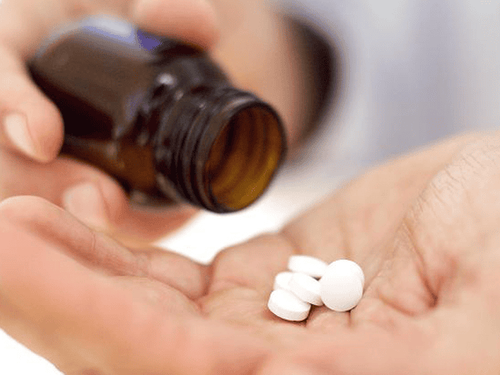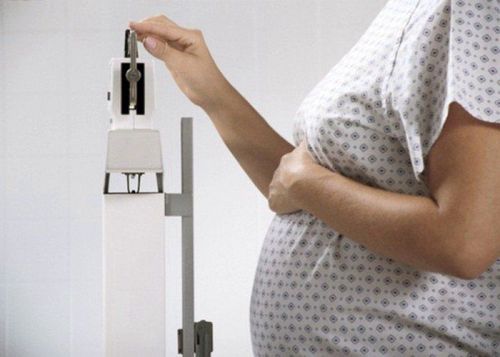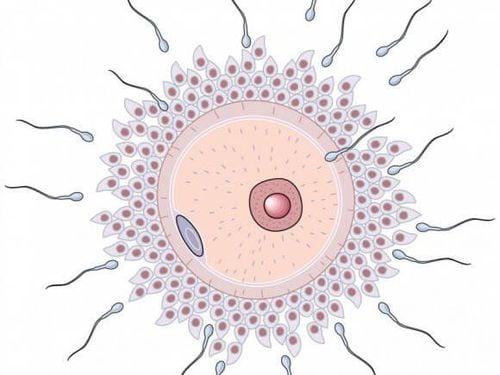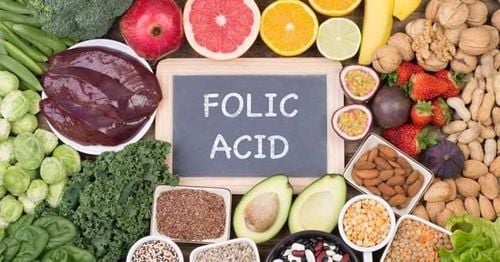This is an automatically translated article.
Posted by Doctor, Doctor Phan Nguyen Thanh Binh - Head of Department of Nutrition - Dietetics - Department of Pediatrics - Neonatology, Vinmec Central Park International General Hospital
The first 1,000 days of life (from conception to 24 months of age and puberty) is highlighted by the World Health Organization (WHO) as the golden period of height and physical development. Malnutrition as early as possible, especially from the fetal stage, will have severe consequences for the health and growth of the baby. So how to prevent undernutrition during pregnancy?
1. Consequences of undernutrition during pregnancy
Malnutrition during pregnancy will greatly affect brain tissue, nerves and will never fully recover. Consequences of undernutrition during pregnancy will depend on the stage of pregnancy:
Early pregnancy: can lead to miscarriage. Formation of the body's organs: can cause birth defects. The last stage of pregnancy: fetal growth retardation leads to babies born with a birth weight of less than 2500g. If protein intake is too low during pregnancy, the number of cells of fetal tissue will decrease, the baby will be born with low birth weight and length not reach the maximum allowable genetic potential.
Protein deficiency is especially serious for the brain because it will cause irreversible growth retardation. Folate deficiency in the first weeks of pregnancy leads to neural tube defects such as spina bifida and congenital brain defects. Incomplete closure of the neural tube is the cause of paralysis, hydrocephalus ... The neural tube usually closes around 24-28 days of pregnancy, this is the time when many women do not realize they are pregnant. Therefore, the diet has not been properly adjusted.
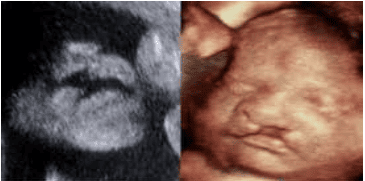
Folate deficiency in late pregnancy will lead to fetal growth retardation and pregnant mothers may have megaloblastic anemia and complications during pregnancy such as placental abruption, bleeding. Iodine deficiency before and during pregnancy will give birth to a dull child, if it is mild, it can lead to retardation of the child's cognitive & motor development. Vitamin A deficiency in pregnant mothers will lead to premature birth, fetal growth retardation and low birth weight. Iron deficiency in the mother can increase the risk of perinatal death in the baby, premature birth, or low birth weight, the mother can have postpartum hemorrhage, slow recovery, reduce resistance. Zinc deficiency in pregnant mothers will affect the potential length of the baby. Vitamin D deficiency during pregnancy will cause calcium metabolism disturbances leading to hypocalcemia, calcium deficiency convulsions, enamel hypoplasia in children and osteomalacia in mothers. Babies born to women whose diets are deficient in vitamin B12 are at increased risk for growth retardation.
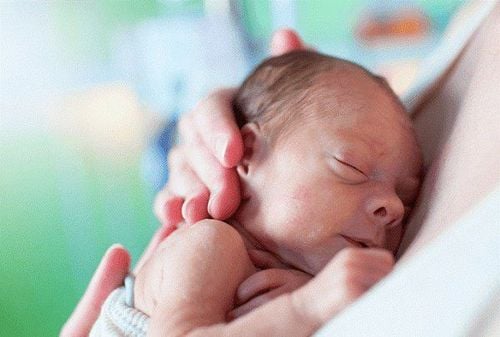
2. Nutritional needs for pregnant mothers
2.1. Energy
The concept that pregnant mothers have to eat twice as much is not true because eating too much will make the mother gain more weight than necessary.
During the first 3 months of pregnancy, energy requirements increase insignificantly. Therefore, eating a variety and full of nutrients is still more important than eating a lot. However, for mothers who are malnourished before pregnancy, they will need to increase their energy intake by at least 150 kcal, equivalent to 1-2 extra meals such as drinking 1 more glass of milk, eating more fruit.
In the 6 months after pregnancy, pregnant mothers need to increase about 300 kcal/day, equivalent to eating 1 more cup of rice with other foods, drinking 1-2 more glasses of milk, or eating 1-2 snacks.
2.2. Protein
Protein from the mother's diet will be transferred to the fetus to synthesize fetal protein. Maternal protein intake affects the potential length of the fetus. Pregnant women need to gain about 15g more protein per day than before pregnancy (that is, add to the daily diet about 80-100 meat or fish, 2 eggs, or 1 glass of milk and 1 piece of cheese). . Accordingly, pregnant women should choose foods rich in protein with high biological value such as meat, fish, eggs, milk (or dairy products), soy products... Meat, fish, eggs are also food rich in iron, zinc, vitamin A. Milk also contains a lot of calcium, phosphorus, vitamin A, vitamin B group...
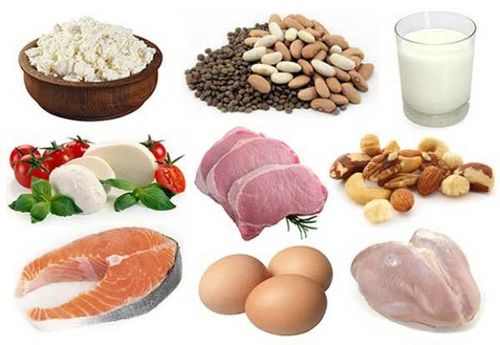
2.3 Calcium
Calcium from the mother is transferred to the fetus to form bones and teeth. During the first 6 months, the mother stores calcium in the bones. A woman who is well-nourished before pregnancy will store more than 1000g of calcium for use. When the fetal skeletal system develops, the need for calcium increases in the last 3 months, the fetus will draw calcium from the mother's stores. Therefore, if the mother does not get enough calcium from food, there is a high risk of tooth decay and osteoporosis later in life. The calcium requirement of pregnant mothers is 1000mg/day.
Some calcium-rich foods pregnant mothers can add to their daily diet such as milk, dairy products, green vegetables, soybeans, small fish eat bones, shrimp and shrimp eat shells. 1 glass of 200ml milk provides about 240 mg of calcium.
2.4. Iron
Pregnant mothers need very high amounts of iron to transfer to the fetus, form the placenta, increase maternal blood volume during pregnancy, and compensate for iron loss during childbirth. The total amount of iron needed by the mother during pregnancy is about 840mg. In fact, most mothers during pregnancy do not have enough iron stores needed for pregnancy.
Iron is found in meat (especially red meat such as pork, beef), fish, egg yolks, green vegetables, beans. Iron from foods of animal origin is more easily absorbed than iron from plant sources. However, taking vitamin C-rich foods with meals will help increase the absorption of plant-based iron. In contrast, tea, coffee, cocoa will inhibit the absorption of plant-based iron, so it should be taken away from meals.
Although a pregnant mother can eat a lot of iron-rich foods, she still cannot meet the extremely high iron requirements during pregnancy. Therefore, in order to ensure enough iron stores for the mother, to meet the needs of the fetus and to prevent iron deficiency in the mother, the National Institute of Nutrition recommends that pregnant women take additional iron tablets with a dose of 60mg of pure iron. a combination factor of 0.4mg folic acid daily from the time the pregnancy is discovered to at least 1 month postpartum.
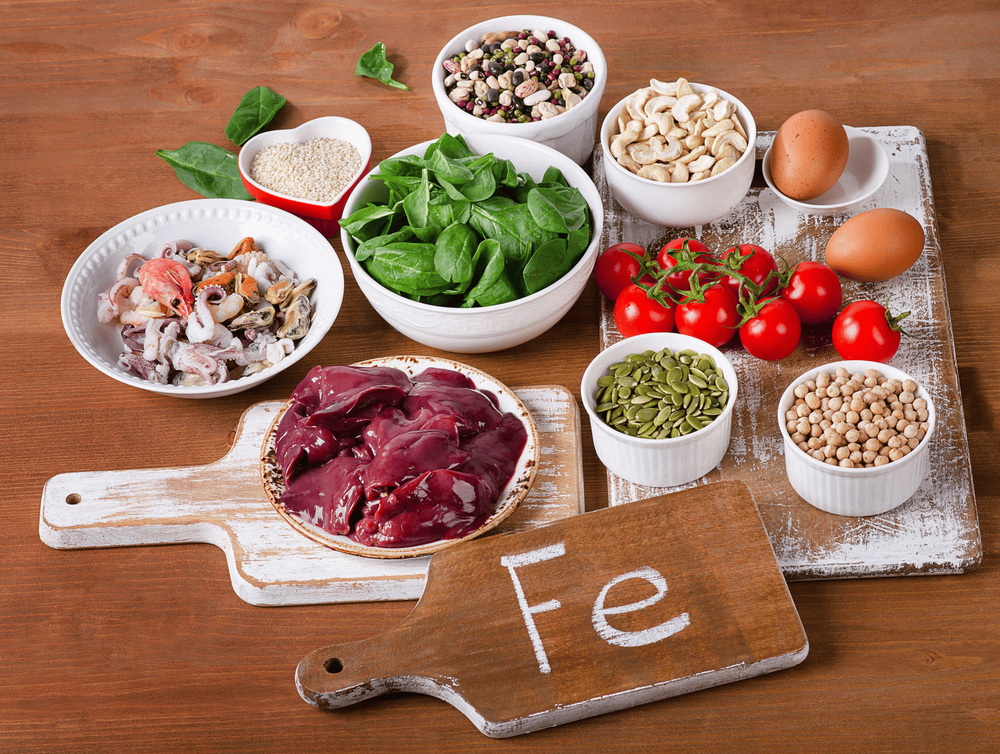
2.5. Iodine
Mothers need to get enough iodine during pregnancy to make thyroid hormone to help develop the baby's central nervous system. Iodine can be provided to the body from food prepared from livestock and plants grown on iodine-rich soil. However, our country is an iodine-deficient region, so livestock and plants are also deficient. Therefore, to effectively prevent iodine deficiency, pregnant mothers should use iodized salt daily (salted) in eating and processing food.
2.6. Zinc
Pregnant mothers need about 15 mg of zinc from their daily diet. Zinc deficiency often occurs in mothers whose diets are mainly cereals, low in foods of animal origin, high in zinc absorption inhibitors (phytates found in foods of plant origin), or mothers with gastrointestinal disease (duodenal inflammation, jejunitis, decreased gastric secretion) affecting zinc absorption or multiple pregnancy. Therefore, these mothers need to be supplemented with zinc.
Zinc is abundant in foods of animal origin, very little in foods from plants (except for the sprouts of nuts).
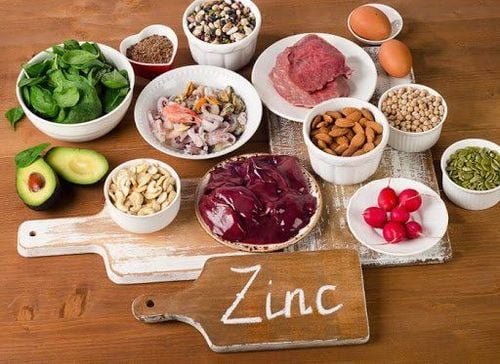
2.7. Vitamin A
The mother's diet needs foods rich in vitamin A (dark green vegetables, dark orange and yellow vegetables) and vitamin A (meat, fish, eggs, milk). Extreme care should be taken when giving vitamin A-containing medicines to pregnant women because high doses of vitamin A can cause birth defects in the fetus. Vitamin A from food is usually safer and not harmful. However, pregnant mothers should not eat too much liver because liver is rich in vitamin A.
2.8. Vitamin D
Vitamin D is essential to increase the absorption of calcium into the body. Mothers need to be in the sun often (early morning or late afternoon) so that the skin is exposed to sunlight to help convert vitamin D under the skin into vitamin D. For mothers who have not been exposed to sunlight during pregnancy vitamin D supplementation is required. However, high doses of vitamin D should not be used during pregnancy.
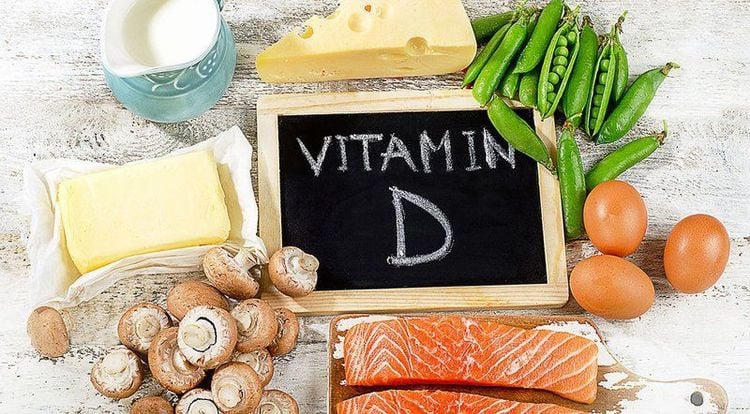
2.9. Folate and vitamin B12
Folate is needed for the formation of the neural tube of the fetus in the first weeks of pregnancy, in the later stages folate is needed for cell division, growth and red blood cell formation. The folate requirement during pregnancy is 400 μg/day. Getting enough folate is especially important for people with multiple pregnancies, chronic anemia, or taking anticonvulsants.
What makes it different from other nutrients is that folate absorption is reduced and excretion is increased during pregnancy. This is an important factor that makes folate deficiency during pregnancy a major concern.
You can increase folate in your diet by: choosing to eat foods rich in folate (wheat sprouts, liver, kidneys, beans, nuts, green vegetables, fruits especially oranges, strawberries, pears, melons). watermelon), eat folate-fortified foods, or take folic acid supplements in pill form. However, it is very difficult to meet the need if only eating foods rich in folate. Therefore, in addition to a diet rich in folate, pregnant women need to supplement about 0.4mg of folic acid per day with foods fortified with folic acid or supplements with folic acid.
Vitamin B12 is also needed for cell division and red blood cell formation. For pregnant women who are vegetarian, it is very important to supplement with vitamin B12, because this is a vitamin found only in foods of animal origin.
2.10. Country
Pregnant mothers need to drink at least about 2 liters of water per day to have enough water for digestion, absorption, metabolism of nutrients, elimination of metabolic products that are not needed by the body, and also to avoid apples. fertilizer. Besides cooked water, pregnant mothers should choose drinks that provide the necessary nutrients for the body to meet the recommended needs (fresh juice, milk...).

2.11. Tonic
Pregnant mothers whose dietary requirements are inadequate (such as lactose intolerance, veganism, dieting, or multiple pregnancies) should be supplemented with a multivitamin or mineral supplement to reduce the risk. brain development defects, improve immune function.
3. Recommended diet for pregnant women
To ensure the health of the mother as well as help the fetus develop healthy, pregnant mothers need to adhere to the following nutrition regimen:
Eat a variety of foods. Eat several meals to meet your nutritional needs. To meet energy needs, each meal should eat 1 cup more rice (with food) than before pregnancy. Sugar powder group: rice, glutinous rice, noodles, potatoes... Should choose good rice, do not rub it thoroughly because it will lose vitamin B1. Potatoes are low in protein, so just eat more, not replace the main meal. Protein-rich foods such as meat, fish, shrimp, crab, eggs, milk and legumes, specifically fish meat: 120-150g per day. A week should eat 2-4 times meat, about 3 times fish, limit eating liver. Eggs: 2-3 eggs per week. Milk: 2-4 cups per day (200ml glass), can be replaced with cheese, yogurt. Do not use too much milk, yogurt is too sweet because too much sugar will not be good. Fat: vegetable oils should be used and eaten only in moderation.

Should eat a lot of fresh vegetables and fruits every day, especially dark green leafy vegetables and dark orange fruits. About 300g of vegetables (equivalent to 3 cups of cooked vegetables) and 2-3 servings of fruit per day (1 portion of fruit is equivalent to 1 banana, 1 medium-sized orange, 1 piece of papaya...) Sweeteners are also only eaten. medium. Eating a lot of sweet foods will make the mother gain a lot of weight, but still may be lacking in essential nutrients such as protein and micronutrients. Using iodized salt in eating and processing food (salted). Drink plenty of water (1.5-2 liters of water per day). Limit alcoholic beverages (wine, beer). Cross-placental caffeine can increase the heart rate and breathing rate of the fetus. Caffeine is found in coffee, some teas, carbonated soft drinks, energy drinks, cocoa... Pregnant women should not drink more than 2 cups of coffee per day. Do not smoke (including inhaling cigarette smoke from the surrounding environment): nicotine from cigarette smoke will enter the mother's circulatory system, cross the placenta, affecting the oxygen supply to the fetus.
4. Special circumstances
4.1 Vomiting
Usually occurs in the first months of pregnancy. If severe, it will lead to a lack of protein and energy, minerals, vitamins and electrolytes. At that time, it is necessary to divide meals, the diet should be low in fat, low in spices and high in carbohydrates. Do not drink too much with meals. If this condition persists, hospitalization should be given to receive fluids to avoid dehydration and electrolytes.

4.2. Chest burning
Usually in the later stages of pregnancy, due to the large uterus putting pressure on the stomach along with the loosening of the esophageal sphincter, digestive juices can easily flow up into the esophagus, causing burning. This symptom will be reduced by eating less at each meal, increasing the number of meals and should not lie down immediately after eating. Avoid fatty foods, coffee and carbonated drinks.
4.3. Constipation and hemorrhoids
Usually in late pregnancy due to decreased bowel movements, less physical activity and because the large uterus presses on the colon. These symptoms can be reduced when the pregnant mother eats plenty of fiber-rich foods such as whole grains, vegetables and fruits, and drinks plenty of water. Drink 1 glass of water when you wake up in the morning.
4.4 Food poisoning
Sometimes food poisoning occurs that seriously affects the fetus. Mothers can be prevented by paying attention to food hygiene, washing vegetables and fruits thoroughly, peeling them before eating, washing hands thoroughly, using cooked water, avoiding eating undercooked food (rare meat, raw fish salad, eggs) peach or raw eggs, grilled seafood, etc.), stay away from pets like cats and dogs because they can get worms from these pets.

4.5 Gestational diabetes
Gestational diabetes mostly appears after 20 weeks and usually goes away on its own after delivery. Pregnant mothers need to eat enough to meet their needs, regularly monitor blood sugar, keep blood sugar levels stable, and prevent depletion of nutritional reserves. The composition of proteins: fat: carbohydrates in the diet should be balanced at 15: 30: 55% of energy.
4.6. Gestational hypertension
Gestational hypertension is a syndrome that includes hypertension, proteinuria, and edema. Occurs in about 7-8% of pregnancies and usually in the last 3 months of pregnancy. This condition reduces blood flow to the uterus resulting in a poorly nourished fetus. Pregnant mothers need regular health monitoring to ensure the safety of mother and fetus.
Appendix
NE, Niacin equivalent; TE, tocopherol equivalent.
* Refer to US recommended needs
** During 6 months of breastfeeding
a The increase in iron requirements for pregnancy cannot be achieved by diet or from the body's stores, so supplementation is required 30-60mg iron.
Nutrition for pregnant mothers during pregnancy is one of the factors that determine the mother's health and the comprehensive development of the fetus right from the womb. Therefore, during pregnancy, mothers need to supplement with reasonable nutrition, to avoid deficiency that affects the health of mother and fetus.
For more specific advice, pregnant women can seek advice from nutritionists and obstetricians and gynecologists. At Vinmec International General Hospital, there is a package of Maternity services, which protects the health of mother and baby during pregnancy - labor and postpartum. When registering for the Maternity Package, pregnant women are examined and monitored for pregnancy by experienced doctors and specialists in Obstetrics and Gynecology, and are able to perform all necessary tests and ultrasounds during pregnancy for monitoring. development of the baby as well as the health of the mother. Experience a "painless birth" and a comprehensive and thoughtful postpartum care program.
Please dial HOTLINE for more information or register for an appointment HERE. Download MyVinmec app to make appointments faster and to manage your bookings easily.





